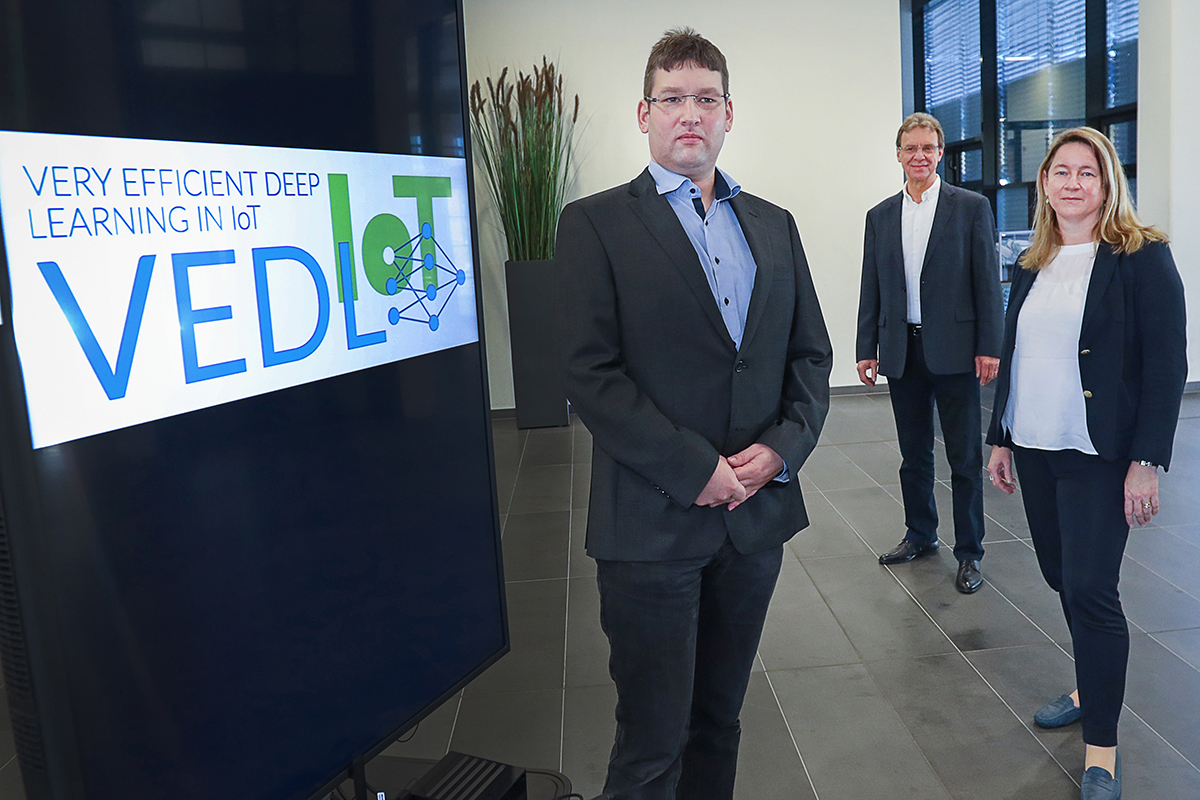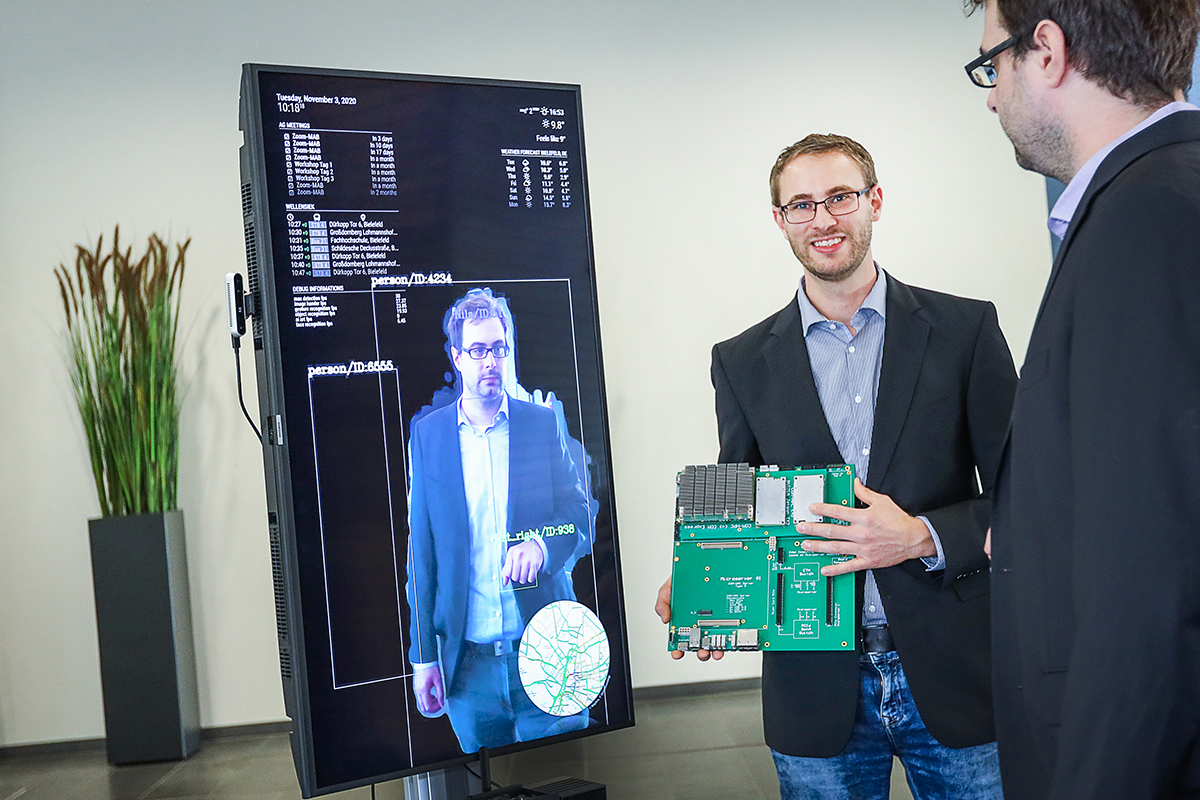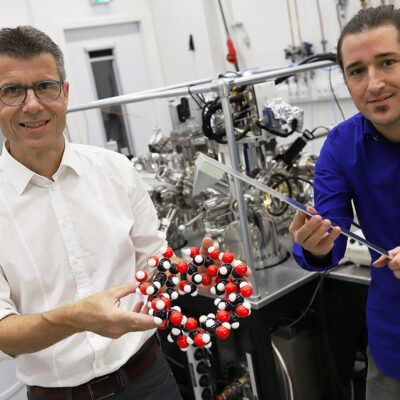Autonomous vehicles and devices for intelligent homes are becoming increasingly complex. A new system based on machine learning is being designed to make the soft- and hardware used for these applications more robust, powerful, and energy-efficient. The new project VEDLIoT is being funded by the European Commission, with approximately eight million Euro over the course of three years. The project is coordinated by Bielefeld University’s CoR-Lab.
In an intelligent home – a “Smarthome” – residents have devices at their fingertips that are designed to make lives easier: imagine a refrigerator that re-orders food when it is running low, and can, at the same time, communicate with the oven. Such devices and modules are part of the Internet of Things (IoT for short). IoT devices are connected to a network where they record, save, process, and transfer data. Applications for IoT devices also include self-driving cars and industrial robotics.
“Computer and IoT systems are getting more and more efficient. This is enabling us to solve more challenging problems and accelerate automation in order to improve our quality of life,” explains Professor Dr.-Ing. Ulrich Rückert, who is the coordinator of the new VEDLIoT project and heads the Cognitronics and Sensor Systems research group at Bielefeld University. “But the volume of the data that is collected and processed is enormous – and the computing power required for this is very high. In addition, the algorithms are often too complex to quickly generate solutions in an appropriate amount of time.”
Artificial intelligence over conventional methods
Twelve partners from four EU countries – Germany, Poland, Portugal, and Sweden – as well as Switzerland, an EU association state, are working together on the project. Instead of relying on conventional methods, such those from statistics, the international research team is using methods of machine learning, including Deep Learning, for which artificial neural networks are used. “In Deep Learning, the underlying network has intermediate neuron layers in addition to input and output layers. This allows for a kind of abstraction to be implemented, which thereby enables complex system behaviour,” says Jens Hagemeyer, an electrical engineer who is a member of the Cognitronics and Sensor Systems research group and is also the technical lead on this project. “We provide the information; the machines learn and decide for themselves.”
With the autonomous learning of the VEDLIoT platform, IoT devices are intended to achieve higher performance while at the same time becoming more energy efficient. For this, a modular hardware platform that allows microservers of different performance classes to be combined on a flexible carrier is developed as part of the project. “Depending on the demands of the application, the servers can be individually configured on the carrier, resulting in a platform suitable for universal use,” says Hagemeyer. System failures are also prevented with the new system: “If a server fails, e.g., due to a weak wireless network, the entire device can still be operated. In the best case, the user of a self-driving car wouldn’t even notice the server failure.”
Open call for additional project partners
“Some of the project partners have been working together for many years,” says Dr. Carola Haumann, who is the project manager and Vice Managing Director of the CoR Lab. Among the project are seven universities and research institutes working in the area of artificial intelligence and the Internet of Things. The other project partners are companies of various sizes, ranging from the start-up EmbeDL to the multinational corporation Siemens.
There is still time for more companies to participate in the project: “We expect to finance at least ten additional use cases in the context of this project – in addition to the existing applications in the sectors of Automotive, Automation, and Smarthomes. That’s why we want to get more companies involved,” explains Haumann. A prototype of the platform should be up and running by mid-2022. “The results from these different applications will flow into the IoT platform throughout the project,” says Jens Hagemeyer. “This will allow us to make continuous improvements to the platform.”
The project was launched in November 2020, and an in-depth workshop with all project partners is planned for early December. The project is scheduled to be completed by the end of 2023. VEDLIoT is financed by the funding line for computer science and communication technologies in the Horizon 2020 EU Framework Programme for Research and Innovation (grant number 957197). The name VEDLIoT is an acronym for “Very Efficient Deep Learning in IoT.”
Participating research institutions and universities in the project are, besides Bielefeld University: Chalmers University of Technology in Gothenburg (Sweden), University of Neuchâtel (Switzerland), Osnabrück University (Germany), University of Gothenburg (Sweden), the Research Institutes of Sweden (RISE) in Gothenburg (Sweden) and FCiências.ID, an association for research and development in Lisbon (Portugal). Participating companies are: Antmicro in Poznan (Poland), EmbeDL in Gothenburg (Sweden), Siemens with headquarters in Munich and Berlin (Germany), Christmann Informationstechnik + Medien in Ilsede (Germany) and Veoneer in Stockholm (Sweden).
Further information:
VEDLIoT project profile






